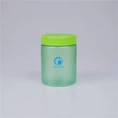Introduction
If you walk through Japanese neighborhoods, you might notice something curious: plastic water bottles neatly placed outside houses, often near gates or fences. For many foreigners, this sight raises questions. Why would people leave full bottles of water outdoors? The answer lies in a mix of cultural habits, traditional beliefs, and practical attempts to solve everyday problems.
The Origins of the Practice
The custom of placing water bottles outside homes is often linked to the idea of keeping stray cats away. Locals believe that sunlight reflecting off the clear water creates patterns that disturb cats' vision, making them less likely to enter or mark territory near the house. This practice became popular in the late 20th century as a low-cost, easy-to-implement solution to urban animal problems.
Does It Really Work?
While many Japanese households still use water bottles this way, scientific studies suggest that the method is not particularly effective. Cats are intelligent animals and quickly adapt to their surroundings. Over time, they learn that the bottles pose no real threat. However, despite the lack of evidence, the tradition persists-partly due to habit, partly due to the cultural value of maintaining a clean and orderly environment.
Symbolism and Community Influence
In Japan, community harmony and aesthetics matter deeply. Seeing neighbors use water bottles often encourages others to do the same, reinforcing the practice even if its effectiveness is questionable. For some, it has become less about keeping animals away and more about showing care for one's surroundings.
Modern Alternatives
Today, many people in Japan prefer other humane ways to manage stray animals, such as using scent repellents, ultrasonic devices, or community-based cat management programs. Yet the image of water bottles outside homes remains a familiar cultural marker, symbolizing Japan's unique blend of tradition and practicality.
Conclusion
The practice of placing water bottles outside Japanese houses may not scientifically prevent cats from wandering in, but it reflects cultural values of cleanliness, order, and community-minded living. It is a fascinating example of how small habits can become part of a nation's everyday life, even when their effectiveness is debatable.
Connect With Us
At Mingda, we specialize in manufacturing high-quality plastic bottles, jars, and packaging solutions trusted worldwide. If you are interested in reliable packaging products for food, supplements, or cosmetics, [contact us here].
















